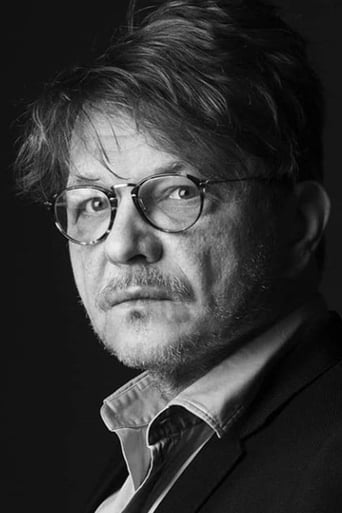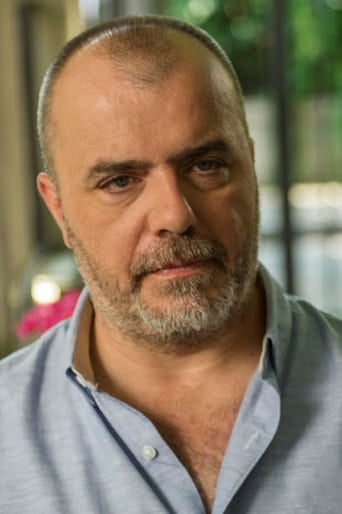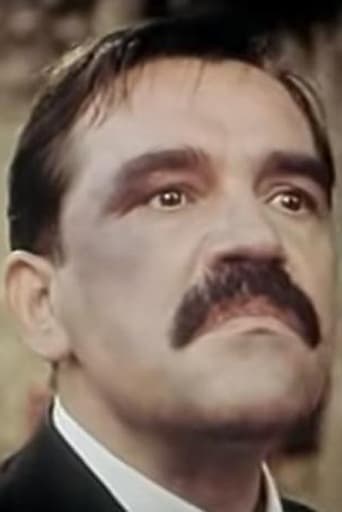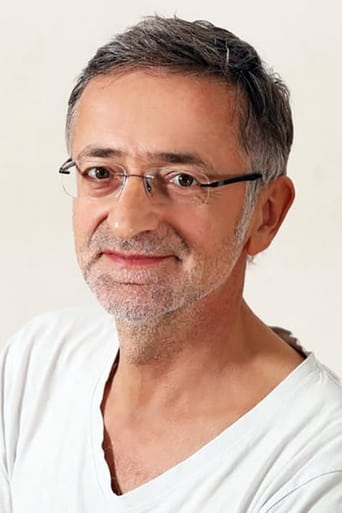SunnyHello
Nice effects though.
FrogGlace
In other words,this film is a surreal ride.
Stephan Hammond
It is an exhilarating, distressing, funny and profound film, with one of the more memorable film scores in years,
Billie Morin
This movie feels like it was made purely to piss off people who want good shows
Come_to Machine
From the perspective of most foreign viewers, including those from ex- Yugoslavia that are not Serbs, this might seem as a movie that idolizes war and the idea of the so called "Great Serbia". This movie only depicts use of mentioned ideas to inflame the hearts and minds of ordinary people to have them become ideology fulled machines, not for the sake of protecting ones native soil but to become a servant to selfish goals of the leading class. This is not a precedent but a pattern that is, and was, used throughout human existence by rulers and politicians.To be able to put aside prejudice and not let surface impressions guide you means to really understand this movie. Nation is an illusion meant to divide and there is no place like here that is more obvious. What we see are ordinary people, their differences, their mixed heritage and their fragile co-existence in a multicultural nation that once was Yugoslavia. The division between them begins when those who have power start pointing at the scars of the past which reach several hundred years into the past. They point their fingers and ask: what is a man without nation and is there a nation when both friend and foe both live in the same street,same town, same country? We see people pulled away from their lives, told a story to make them more obedient and pointed toward their neighbors, their friends with a rifle in their hands. It is a search for national identity, on a large scale, in a place and time when being just a man is no longer enough. We witness a change that occurred in the Balkans, an "earthquake" that shook and divided man and land that was the death of the former president of SFRJ Josip Broz Tito. A new horizon and new people, people who were no longer in shadows and who wanted power. Generations are drawn into this and we see the difference of perspective of the old militarized patriots and the youth which is deprived of their most significant years, fed a bunch of ideas and marched of to war. No tears are shed for that old regime but already they must fight for the new one. They all have one thing I common – songs, old songs that marked the whole entirety that was Yugoslavia, songs that all generations grew up with, marched on parades and danced to. Just songs, no Serbs, Muslims or Croats, just Slavs and their pain, but as men.The cast is comprised of some of the best ex-Yugoslavian and Serbian actors. They portray "normal" lives of men just trying to get by. Their past and how they got where they are is entwined with the story and develops slowly together with the story. They manage to flawlessly depict carnage, madness and lost cause from the start. Their vulgar language and behavior hides their disappointment in what is now and their fear of what is to come. They pillage, murder and are more beasts than soldiers, but are they that different from every other person who took up arms for the idea forced onto him? Still they ask questions, quiet ones and let some fragments of their human side, their youth surface and for that time they look through the sights of a riffle only to see a friend, a brother and still know that they must kill having faith in no one any more. On the other hand we see a different picture far from the front, from the killing. Civilians, untouched by war, their selfish preoccupations, pacifism and general disregard for those that are out there, fighting for all of them. One must ask a question: "why me?", and then hate the all, those who made you bleed and those who don't care. For this Balkans offers a unique setting and this movie takes full advantage of it by giving us a situations and mentality of people who have been shaken out of a dream and marched into the gauntlet!In directors words: this movie is dedicated to the cinema of a country that no longer exists. This movie might be the last work truly dedicated to that country, Yugoslavia, and it's demise. Filmed when the war was still raging on and based on a true story it strips men of their humanity and gives them new roles. Not a real war movie, nor an ideological brainwashing tool but an emotional remainder of what it costs to let power and personal ideals of others replace reason and human emotions.
Olvrgg
''Pretty village, pretty flame'' is war movie with anti war message. It's story about 2 childhood friends separated by war and forced by their religion and nationalism to fight against each other. This movie portrays war as it is, and it delivers universal massage about war.When it came out in 90's this movie was banned by regime in Serbia because it was labeled as anti-Serbian. At same time it was being labeled in other ex-Yugoslavia countries as pro-Serbian and it was getting banned in Croatia and Bosnia. This movie is at moments hard to watch, and for people that aren't familiar with ex-Yugoslavia situation in 90's some things might be confusing, but overall this movie is a real masterpiece of Balkan cinematography.
hadzija
I've seen it again today. I've seen it ten years ago when it first came out. On a 17x copied VHS bootleg tape, and now on DVD. Without going into details, I can only say this is one of the movies that I've seen many times and each time I see it it strikes me as the best of the best. It's multi layered and highly symbolic at times, due to that, the only ones to understand it fully are people that have a good understanding of the Balkan wars and/or the mentality of the characters. Some see it as pro-Serbian propaganda, other see it as anti-Serbian. And that alone makes it worth watching for me. Anyways, it's a chilling and wonderful masterpiece. Sad, bleak, darkly humorous at times but very very VERY good.
gospodinBezkrai
Another post-yugoslav film defending the humanity of the Balkan peoples in the light of European accusations that they are innately violent and blood-thirsty. It attempts to prove instead, that War is larger than man! The War easily defeats him into a monster that plunders his own house and seeks the murder of his own best friends. The film follows the fate of a group of besieged Serbian soldiers coping with their imminent death in parallel with the stories of how they ended up as soldiers. Yet it manages to do this in more light-hearted way than one would expect! Maybe because humour has been always the last resource of the downcast, at least in this part of the world!Balkan people may not be murderous savages, but they are masters in fashioning absurdity, and they appreciate absurdity when it happens to them. In this, the film characters stand next to the director, even when facing their own deaths. Absurdity of a fine sort fills the entire film, one might guess what is expecting him from the witty title itself properly translated as "Beautiful villages burn beautifully". I am only afraid it might lead the audience to believe that Bosnian war is portrayed here with more artistic license or exaggeration than is the truth..."Lepa sela lepo gore" shares the same theme as the bosnian film "No man's land" and ends (very movingly at that!) with the same message - an outsider is not in position to judge or qualify those who have lived through the conflict for their actions. He has no moral right neither to blame nor to forgive. While "No man's land" relates this issue directly to the habit of international media and western audiences to qualify sides in conflicts they do not understand, this film remains less committed to the contemporary. Instead it poses the same question to all of us as humans.



